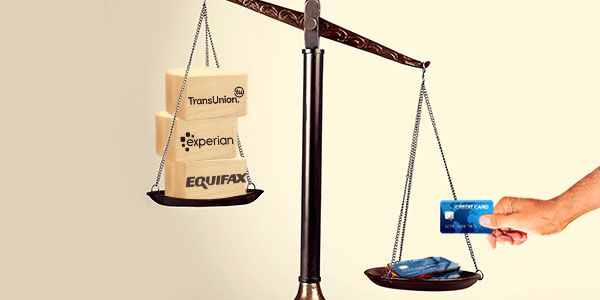Credit card debt consolidation gives a new financial life to a nation grappling with $15,983 credit card debt. It helps consumers to pay back their creditors and boost nation’s economy. But how does this debt relief option affect our credit score? Does it hurt our credit score like bankruptcy? Let's find out.
How does credit card debt consolidation affect credit score?
It depends on your overall utilization ratio.
When credit card debt consolidation drops your utilization ratio, your credit score increases. Usually, lowered utilization on your credit cards is more important than other factors affecting the credit score.
Credit-utilization ratio makes 30% of your credit score. A high utilization ratio is bad for your credit score. So when you max out a credit card, your credit card utilization drops.
When you consolidate and pay off your multiple bills, your utilization ratio drops. Suppose, your utilization ratio on one credit card is 90% and 80% on another one. When you consolidate both the credit cards through a program and pay off the entire balance, your utilization ratio becomes 1%. This reduces your overall utilization ratio as well, and it helps to boost your credit score.
The same thing happens when you consolidate your credit cards with a consolidation loan or a balance transfer credit card. The utilization ratio drops to zero and your score goes up.
How much can your credit score increase?
It depends on your specific profile like:
- How many negative listings are there on your credit report
- How many accounts are there with balance
- What your balance is in comparison to your overall credit limit, etc.
Your credit score can increase by 100 points in the following scenario:
You have a 95%+ utilization ratio. If your utilization ratio drops to 1% after consolidating bills, your credit score could increase by 100 points. If your utilization ratio drops to 50%, your credit score could jump by 50 points.
These are just numbers. If you want to get the exact figure, learn about the initial aggregate utilization ratio.
When does credit card debt consolidation hurt your credit?
If you continue to add charges on other credit cards, then your total utilization ratio won't drop. Rather, it will continue to increase. This would make a negative impact on your credit score.
If you take out a debt consolidation loan to consolidate your credit cards, then a new credit inquiry will hit your credit report. This may drop your credit score by a few points.
Stop using credit cards and lead a frugal life if you want to avoid further debts and improve your score.
Few tips to lead a frugal life
- Insulate your walls to reduce your electricity bill
- Double check your credit card and other utility bills
- Don’t make impulsive purchases
- Buy fresh veggies from the local market and prepare cheap meals at home
How credit card consolidation affects your credit score
| When does consolidation lift your credit score? | When does consolidation hurt credit score? |
|---|---|
| Lower utilization of all your overall revolving accounts | New credit inquiry (in case of a consolidation loan) |
| Lower utilization of your individual revolving account | Higher utilization of other installment accounts |
A new credit inquiry hits your credit report when you apply for a new consolidation loan. Usually, a new credit inquiry pulls down credit score by 5 points. However, there is one exception when you’re ‘rate shopping’.
All credit inquiries within 45 days are regarded as a single inquiry. If you apply for various types of loans within the 45-day period, the FICO will consider it as a single inquiry.
If you’re a smart shopper, apply for consolidation loans within the 45-day period to be in the same ‘inquiry bin’.
Conclusion
Different types of factors go into generating a credit score. A slight change can make a big difference in your score. The change can be both positive and negative.
With this point in mind, a credit card consolidation program helps to boost the credit score.









